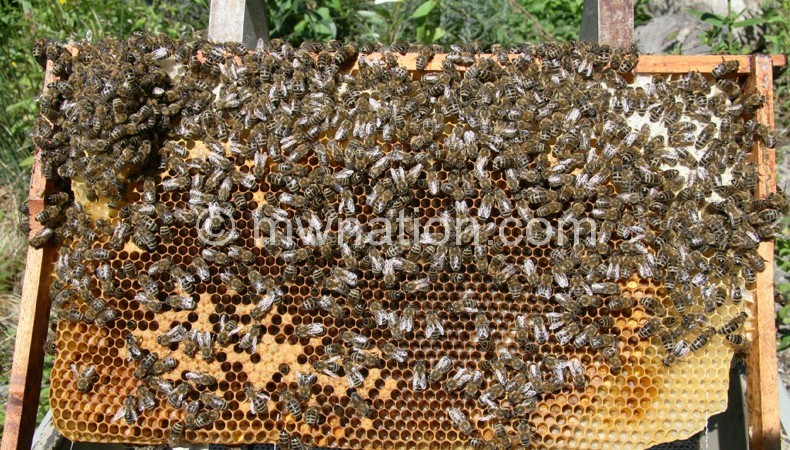Kenyan firm introduces new technology on beehives
A honey-producing company based in Kenya has introduced a new technology of assembling beehives for farmers to produce more honey for the export market.
The new technology limits the use of nails and the hives made with the technology can be assembled or unassembled on site and helps farmers produce more than 10 kilogrammes (kg) of honey per harvest.
 The company’s beekeeping trainer, Bernard Munguti, told Business News on Tuesday, on the sidelines of a training workshop, that the new technology has already been introduced in Tanzania, Rwanda, Burundi and Uganda.
The company’s beekeeping trainer, Bernard Munguti, told Business News on Tuesday, on the sidelines of a training workshop, that the new technology has already been introduced in Tanzania, Rwanda, Burundi and Uganda.
“In Malawi, we have started with workshops where farmers will be trained and get the equipment. Right now, we are taking two people to Tanzania where they will be trained for one week,” he said.
Munguti said demand for honey is high in Eastern Africa such that their company is failing to meet it.
“That is why we are expanding to so many countries to make sure that more farmers produce high-quality honey needed on the market,” he said.
The training in Mzuzu was organised in partnership with the Northern Honey Processors and the Technical, Entrepreneurial and Vocational Education and Training Authority (Teveta).
Chairperson for Northern Honey Processors Lestina Nhlema, whose organisation has secured 50 new beehives, said this will help them triple the production of honey.
“Honey business is lucrative but we fail to meet the demand. The problem is that with the local beehives, we lose a lot of honey because they are not of high standard. These new beehives will help us produce more honey to meet the demand on the market,” she said.
The organisation has 260 beehives in Nkhata Bay and Mzimba but Nhlema said they intend to secure 2 500 new beehives from the Kenyan organisation.
Teveta regional service centre manager for the North, Conceptor Kachoka, said they put interventions to make sure that more people venture into bee-keeping since it does not need much inputs or capital.
She said Teveta has supported three clubs in the Northern Region in bee-keeping business.
“We trained them last year after noticing that they were lacking necessary skills in bee-keeping. But if there are more people who want to venture into this business, let them knock on our door and we will open it for them,” she said.





